
[港台電視31] 零距離科學 逢星期五晚9:30
DoctorWho
881 回覆
43 Like
1 Dislike
呢個光頭佬真係好鐘意佢 整埋隻公仔出黎

有兩隻

睇得多地球既生物就覺得人好渺小
唔同色 好得意

咁尾...咁咪唔洗再捐血比垃圾紅十字會

諗起蜘蛛俠嗰個蜥蝪博士
仿生學:超感官
31/07/2020
視覺、嗅覺、聽覺、觸覺、味覺,我們這五個感官幫我們探索周圍的世界,並提醒我們當中的危險。可以即使我們的眼睛、耳朵、鼻子、味蕾或皮膚有多發達,我們的感覺器官也不能讓我們洞悉所有威脅!雖然大自然賦予我們各個感官,但事實上確是有一些「信號」是人類無法感知的。
同時,一些生物卻能輕易感應和譯解這些信號,因為數十億年的物種演化迫使他們發展出高效的偵測策略和強大的感應器,來自我保護、互相溝通和覓食。
要是我們能複制這些「超級感應器」來提升自身能力的話會怎樣?要是大自然教會我們如何迅速識別潛在的危險、令我們能更懂得避開危機,又會怎樣?
在節目中,主持人卡蓮娜.拉斯金會與多位研究人員,企業家和發明家會面,他們受到大自然的超強感應力啟發,想出各種能夠改善人類生活條件的構想。
電視版本:雙語廣播(粵語/英語)
Sight, smell, hearing, touch, taste: our 5 senses allow us to understand the world around us and warn us of its dangers. But as advanced as our eyes, our ears, our noses, our taste buds or our skin may be, our sensory organs do not allow us to apprehend all threats! There are indeed "signals" that we humans are unable to perceive with the senses that nature has endowed us with.
Meanwhile, some living species can easily sense and decode these signals (infrared, vibrations...) because, over billions of years of evolution, they were compelled to devise hyper-efficient detection strategies and to develop overpowering sensors to protect themselves, communicate or feed.
What if we could copy these "super sensors" to increase our own capabilities? What if nature taught us how to swiftly identify the dangers that await us, so that we could avoid them better.
In this episode, Kalina Raskin will meet researchers, entrepreneurs and innovators who are inspired by nature’s super sensitivity to provide us with the resources needed to improve our life conditions, everywhere on the planet.
TV Version: Bilingual Broadcast (Cantonese/English)
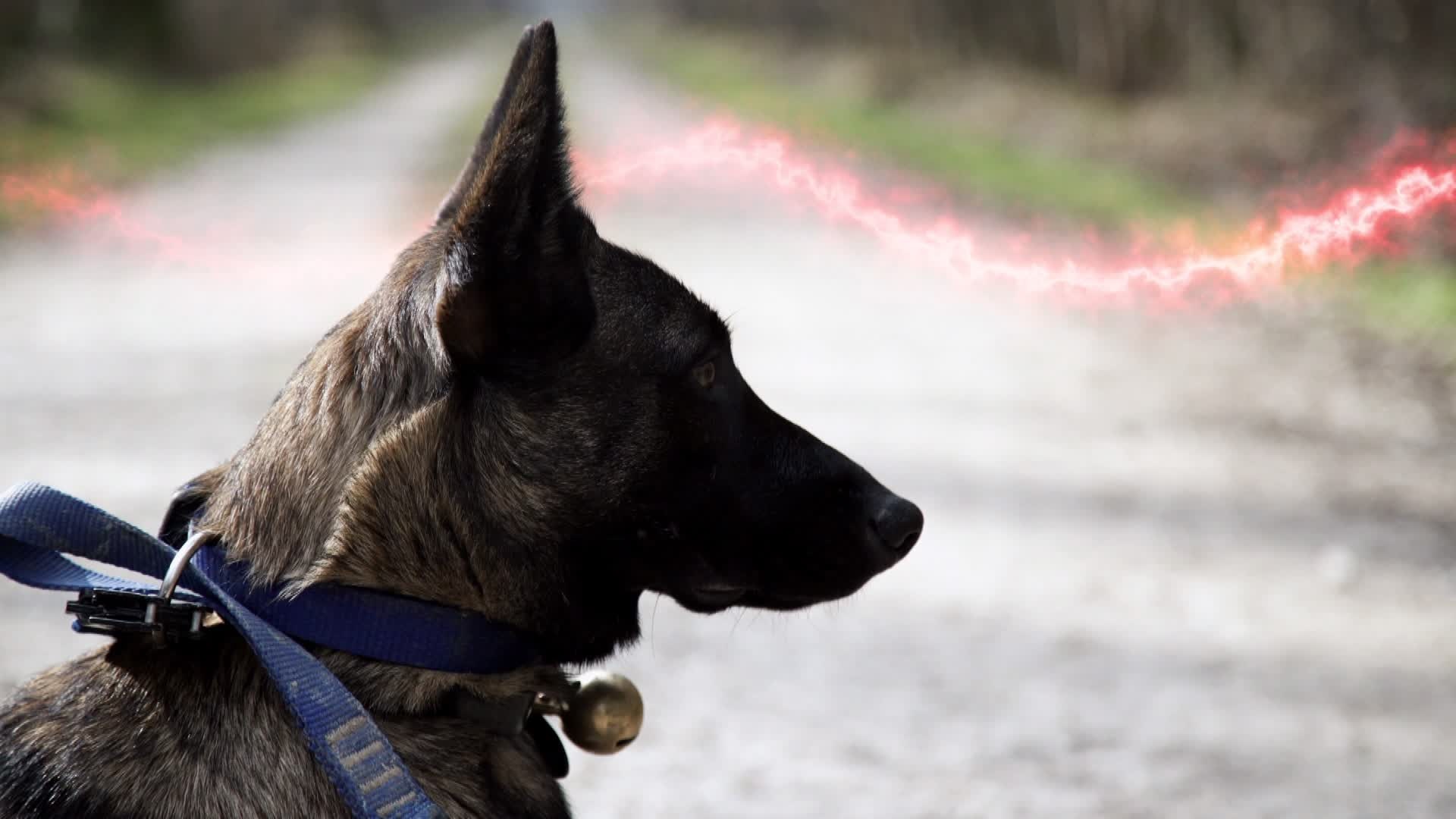
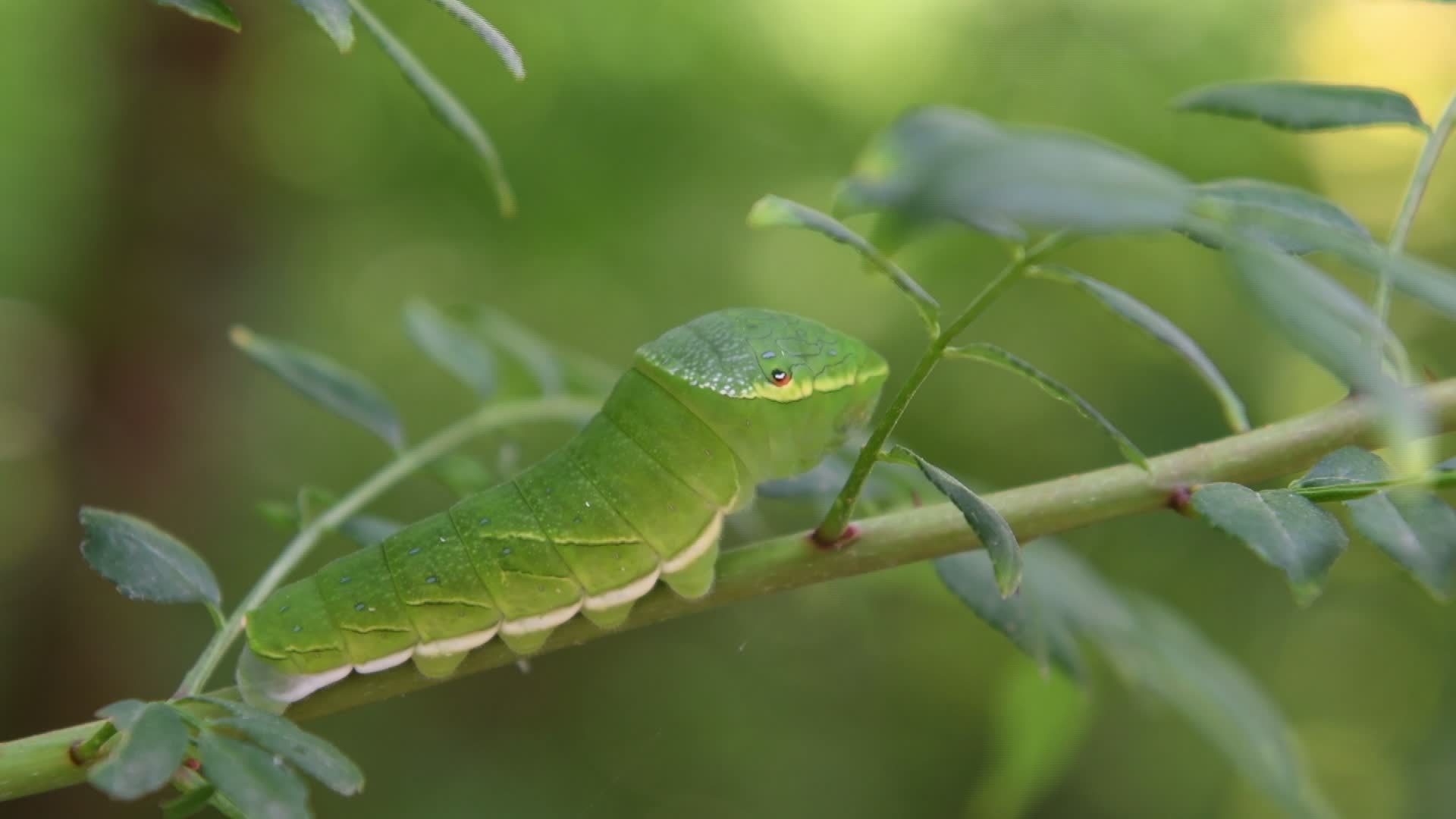


https://www.rthk.hk/tv/dtt31/programme/sciencewithyou/episode/689042
31/07/2020
視覺、嗅覺、聽覺、觸覺、味覺,我們這五個感官幫我們探索周圍的世界,並提醒我們當中的危險。可以即使我們的眼睛、耳朵、鼻子、味蕾或皮膚有多發達,我們的感覺器官也不能讓我們洞悉所有威脅!雖然大自然賦予我們各個感官,但事實上確是有一些「信號」是人類無法感知的。
同時,一些生物卻能輕易感應和譯解這些信號,因為數十億年的物種演化迫使他們發展出高效的偵測策略和強大的感應器,來自我保護、互相溝通和覓食。
要是我們能複制這些「超級感應器」來提升自身能力的話會怎樣?要是大自然教會我們如何迅速識別潛在的危險、令我們能更懂得避開危機,又會怎樣?
在節目中,主持人卡蓮娜.拉斯金會與多位研究人員,企業家和發明家會面,他們受到大自然的超強感應力啟發,想出各種能夠改善人類生活條件的構想。
電視版本:雙語廣播(粵語/英語)
Sight, smell, hearing, touch, taste: our 5 senses allow us to understand the world around us and warn us of its dangers. But as advanced as our eyes, our ears, our noses, our taste buds or our skin may be, our sensory organs do not allow us to apprehend all threats! There are indeed "signals" that we humans are unable to perceive with the senses that nature has endowed us with.
Meanwhile, some living species can easily sense and decode these signals (infrared, vibrations...) because, over billions of years of evolution, they were compelled to devise hyper-efficient detection strategies and to develop overpowering sensors to protect themselves, communicate or feed.
What if we could copy these "super sensors" to increase our own capabilities? What if nature taught us how to swiftly identify the dangers that await us, so that we could avoid them better.
In this episode, Kalina Raskin will meet researchers, entrepreneurs and innovators who are inspired by nature’s super sensitivity to provide us with the resources needed to improve our life conditions, everywhere on the planet.
TV Version: Bilingual Broadcast (Cantonese/English)




https://www.rthk.hk/tv/dtt31/programme/sciencewithyou/episode/689042
推

🇺🇸象徵

仿生學:未來交通
07/08/2020
現今世界發展迅速,資源卻有限,我們應如何開發較環保的交通方式,減少污染和原材料消耗?產品和機械人又如何能做到更可靠、活動更流暢和高效?
無論是動植物或微生物,所有物種都有自己一套求生方式,懂得以最精準的方法協調身體活動,加速、逃跑和攻擊,並以最節能的方法避開碰撞,從而走得更遠。當中的進化過程經過幾百萬年時間才完成,期間更沒有製造任何垃圾,沒有浪費垂手可得的資源。
今集,我們會看看工程師、企業家和科學家,如何從海陸空生物身上尋找靈感,嘗試仿傚牠們活動自如的機制,開創更方便的未來。
電視版本:雙語廣播(粵語/英語)
In a world in constant acceleration but with limited resources, how to invent means of transportation that are less polluting, less greedy in raw materials and with no impact on our environment? How to make objects and robots with more reliable, more fluid and more efficient movements?
Animals, plants, microbes ... The living has found remarkable solutions to escape and attack optimally, to propel, accelerate, coordinate its movements in the most precise way, and to avoid collisions energy-efficiently, to go the furthest possible. This development took millions of years but without generating any rubbish, without wasting the materials at immediate disposal.
In this episode, we will discover how, by seeking to copy the super solutions imagined by these organisms to move as efficiently as possible on land, in the water or in the air, the creators of the future, whether they are engineers, entrepreneurs or scientists, invent the world of tomorrow.
TV Version: Bilingual Broadcast (Cantonese/English)
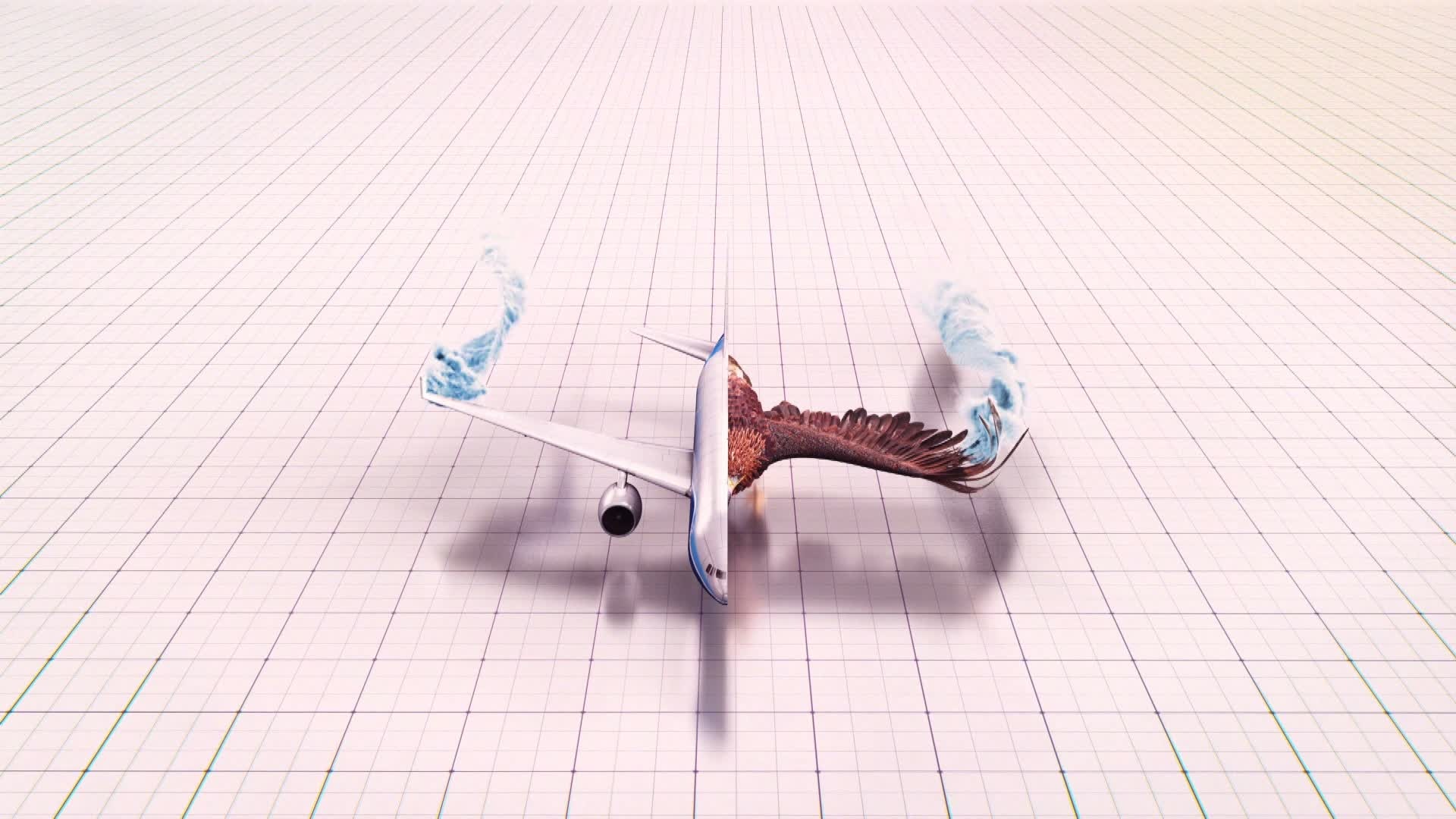

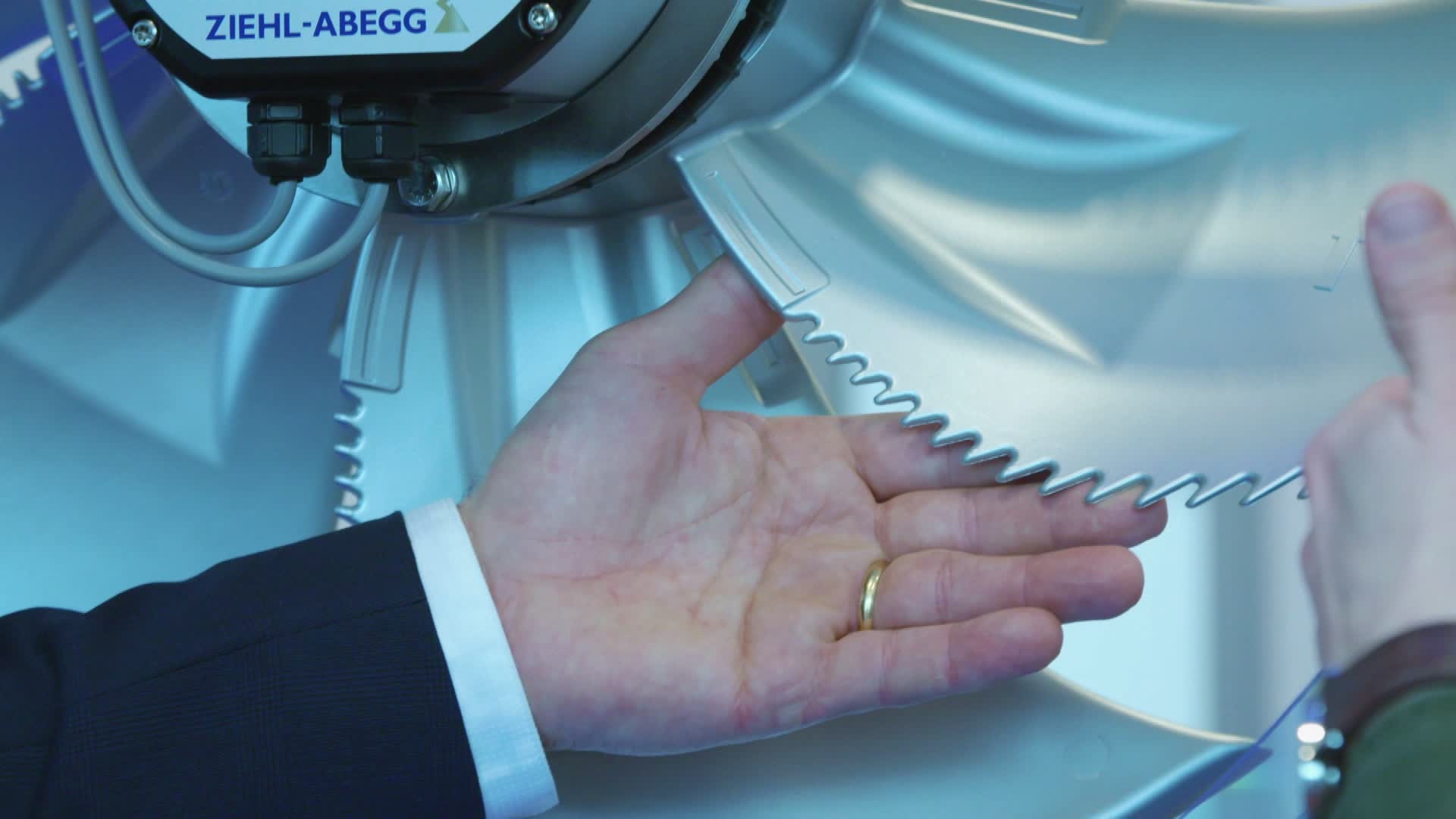
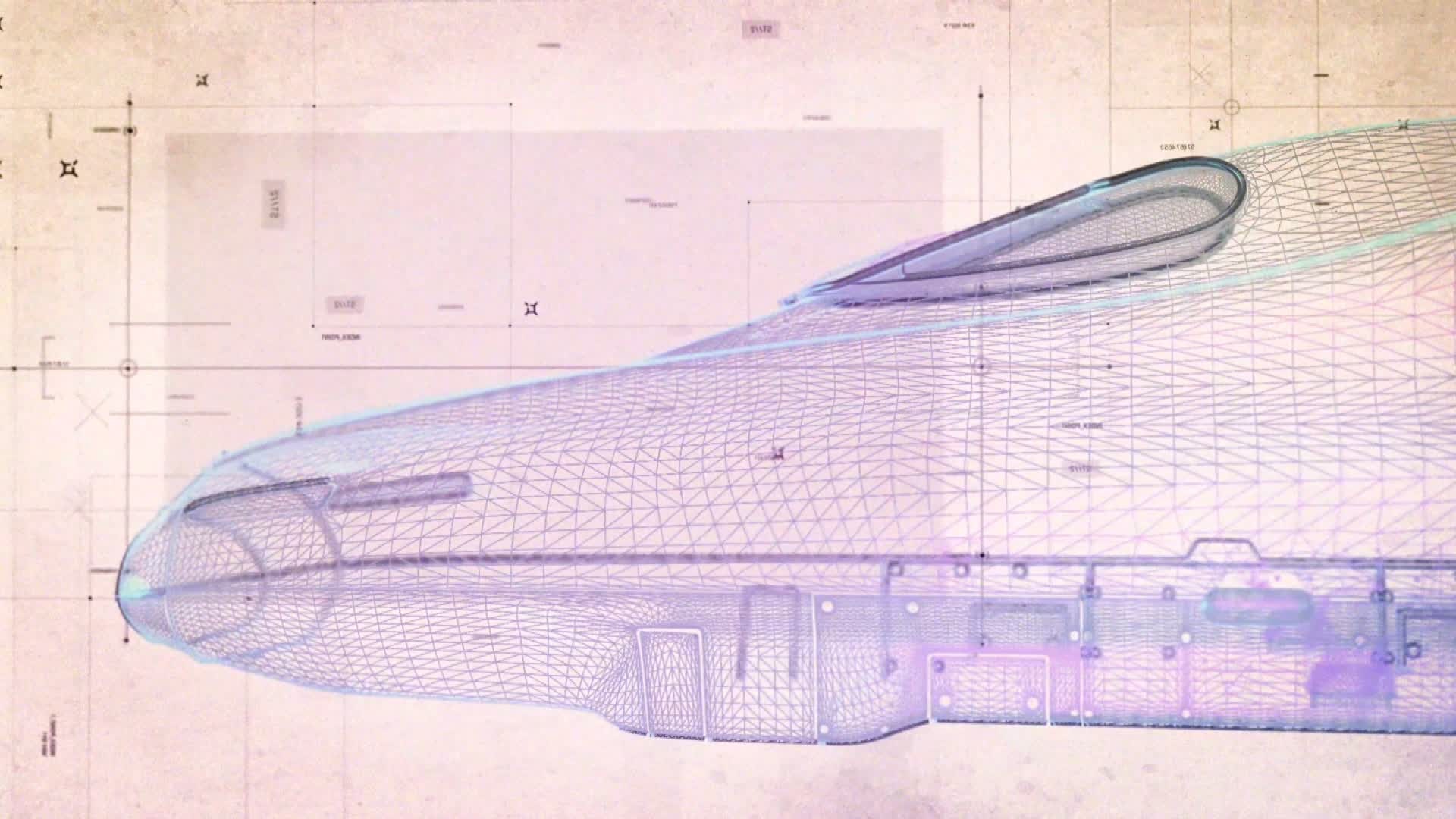
https://www.rthk.hk/tv/dtt31/programme/sciencewithyou/episode/689024
07/08/2020
現今世界發展迅速,資源卻有限,我們應如何開發較環保的交通方式,減少污染和原材料消耗?產品和機械人又如何能做到更可靠、活動更流暢和高效?
無論是動植物或微生物,所有物種都有自己一套求生方式,懂得以最精準的方法協調身體活動,加速、逃跑和攻擊,並以最節能的方法避開碰撞,從而走得更遠。當中的進化過程經過幾百萬年時間才完成,期間更沒有製造任何垃圾,沒有浪費垂手可得的資源。
今集,我們會看看工程師、企業家和科學家,如何從海陸空生物身上尋找靈感,嘗試仿傚牠們活動自如的機制,開創更方便的未來。
電視版本:雙語廣播(粵語/英語)
In a world in constant acceleration but with limited resources, how to invent means of transportation that are less polluting, less greedy in raw materials and with no impact on our environment? How to make objects and robots with more reliable, more fluid and more efficient movements?
Animals, plants, microbes ... The living has found remarkable solutions to escape and attack optimally, to propel, accelerate, coordinate its movements in the most precise way, and to avoid collisions energy-efficiently, to go the furthest possible. This development took millions of years but without generating any rubbish, without wasting the materials at immediate disposal.
In this episode, we will discover how, by seeking to copy the super solutions imagined by these organisms to move as efficiently as possible on land, in the water or in the air, the creators of the future, whether they are engineers, entrepreneurs or scientists, invent the world of tomorrow.
TV Version: Bilingual Broadcast (Cantonese/English)




https://www.rthk.hk/tv/dtt31/programme/sciencewithyou/episode/689024
瞄撚準未 

開波








咁似蝙蝠 

一身充滿電鰻 

機械青口/魚 
會唔會有強国人捉到真係煮咗嚟食

會唔會有強国人捉到真係煮咗嚟食

重金屬美食

食元素表 

又要認住呢隻鷹
攞囇去研究

下集:無頭東宮
wtf 換面????????



換面
14/08/2020
本集記載了一個非比尋常的手術:加拿大首個全面移植手術,加拿大攝製團隊獲准拍攝這項大膽計劃的每一個階段,據專家估計,手術的成功只有百份之五十。
攝製隊於手術前十五個月,開始拍攝醫療團隊於移植前準備工作的點滴,以及病人為手術所作的漫長等待。萬中無一的捐贈者出現,攝製隊隨即進入手術室,拍攝歷時三十五小時的手術過程,故事以病人首次見到自己的新面孔為結。
這是一個充滿勇氣、希望及決心的非凡科學旅程。
電視版本:雙語廣播(粵語/法語)
This documentary chronicles an extraordinary surgical exploit: the first complete face transplant ever performed in Canada. The Canadian TV crew was granted full access to every stage of this daring project, which experts estimated had only a 50 percent chance of succeeding.
The crew’s privileged access begins 15 months prior to the operation. The production follows the medical team’s preparations for the transplant and the patient’s long wait for surgery. Once the donor is found, the crew moves into the operating room to document the procedure, which lasts 35 hours. The story concludes with the patient seeing his new face for the first time.
This one-of-a-kind document recounts every detail of a remarkable science odyssey fuelled by courage, hope and determination.
TV Version: Bilingual Broadcast (Cantonese/French)

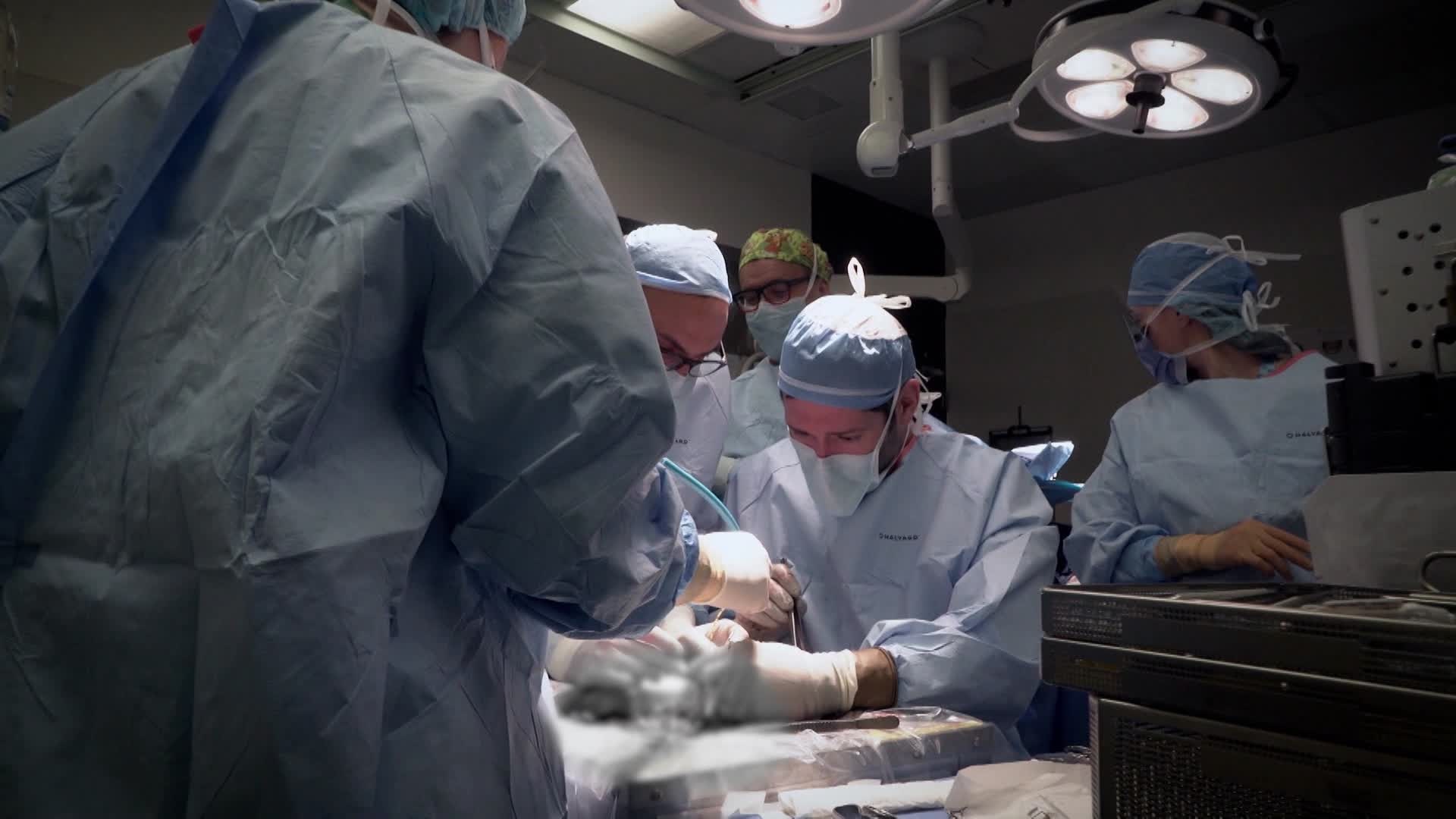
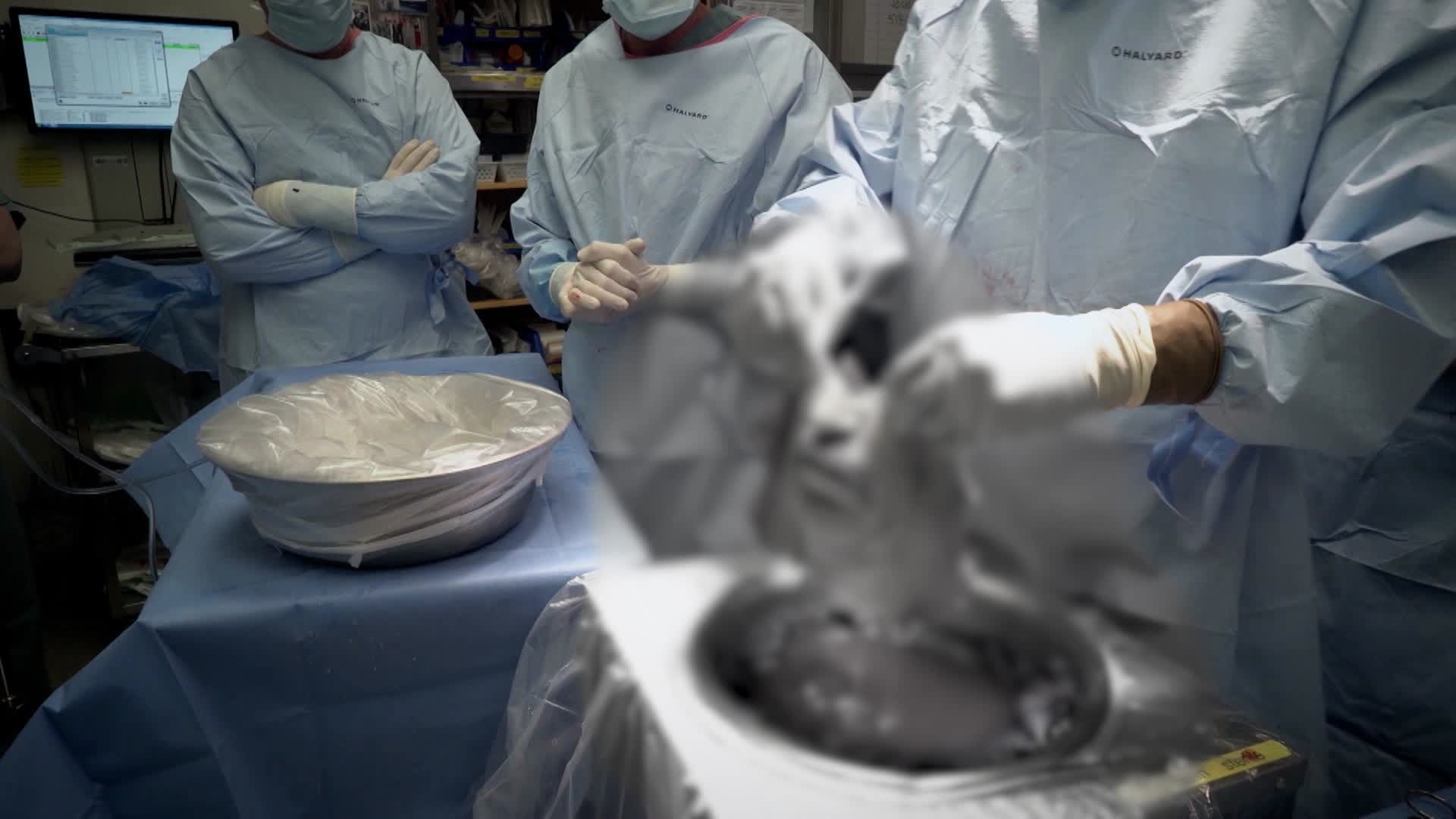
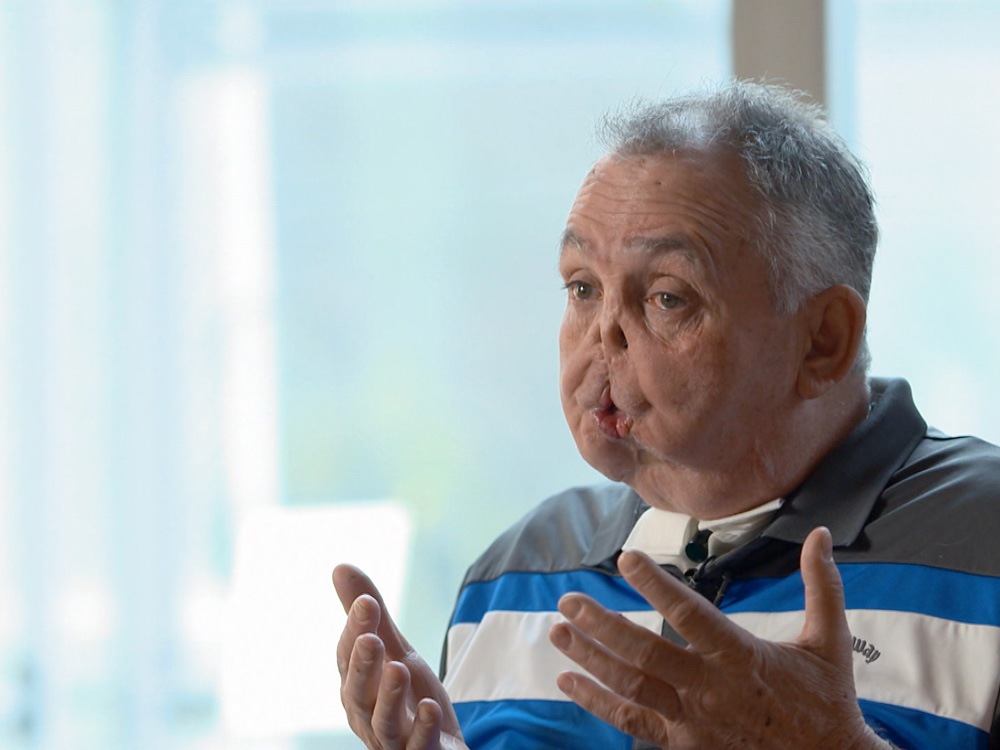
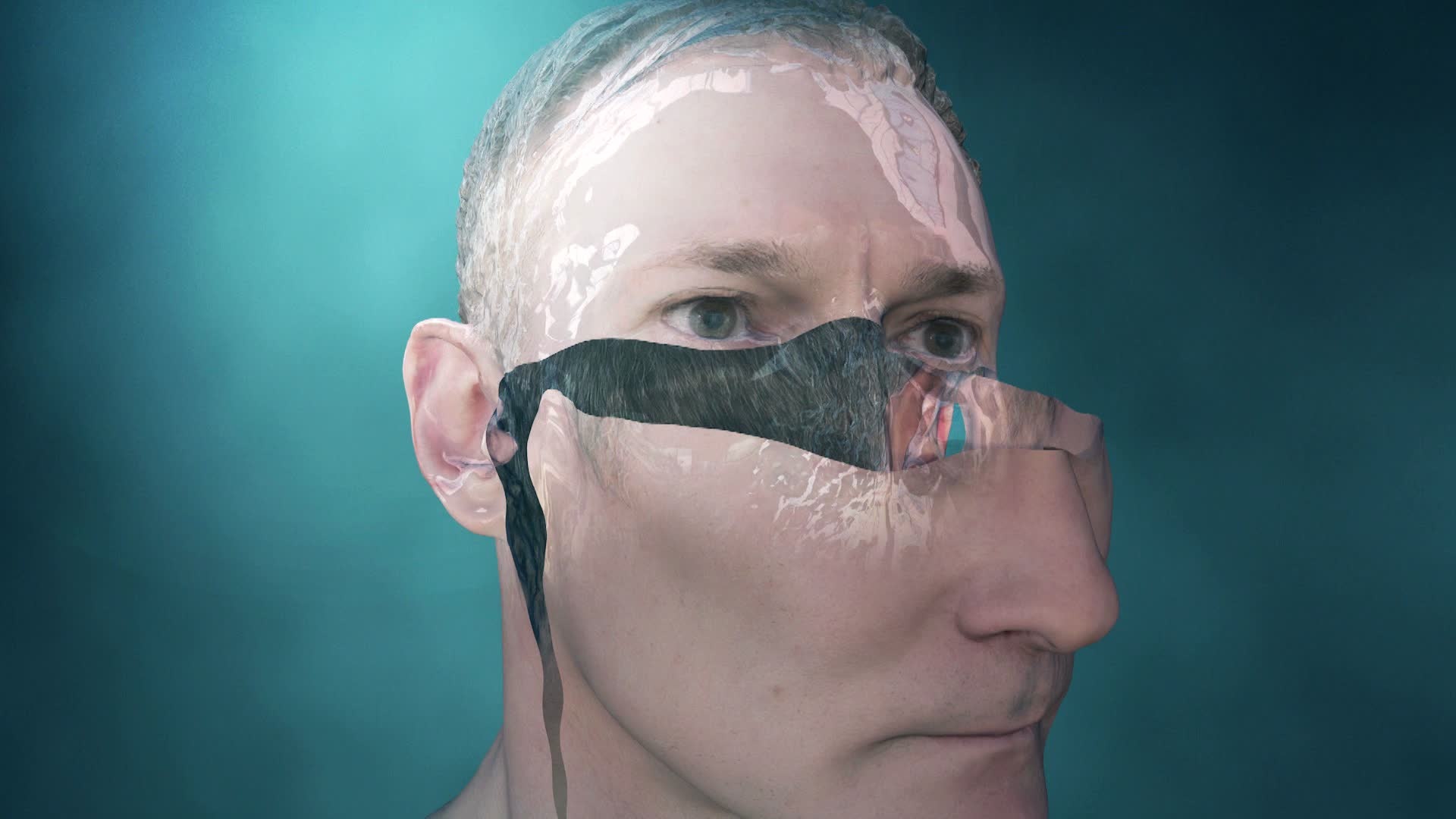
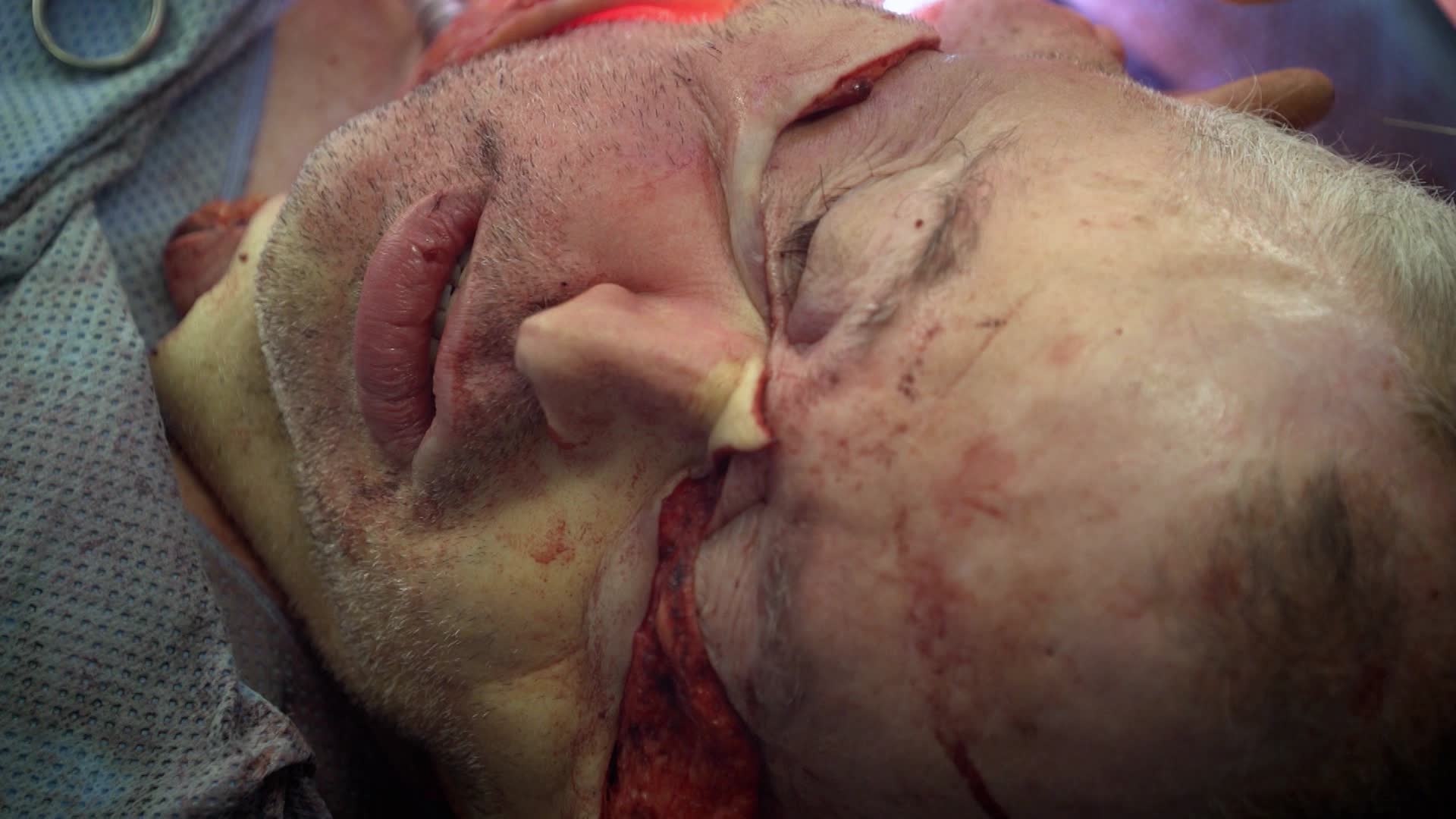
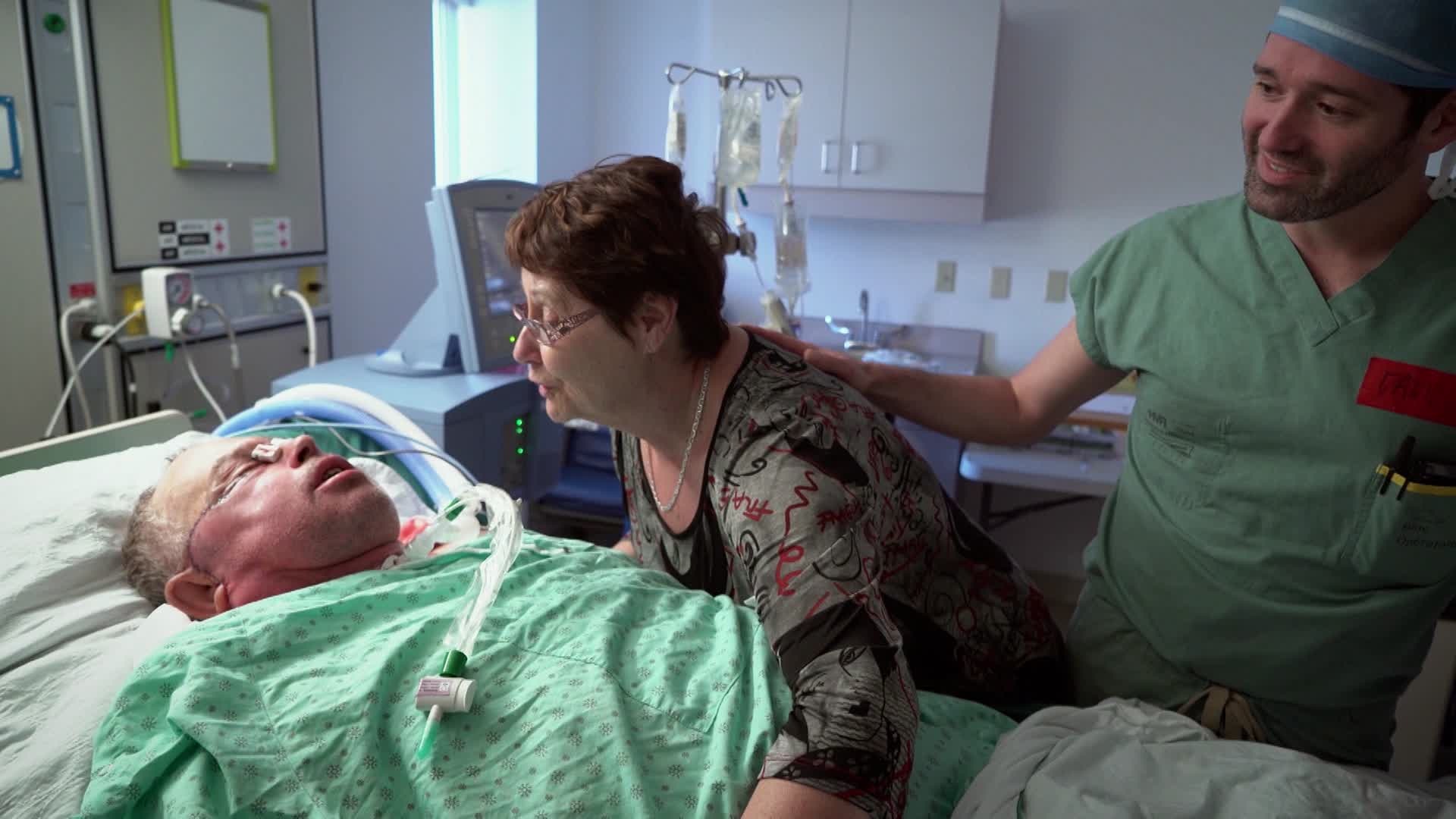
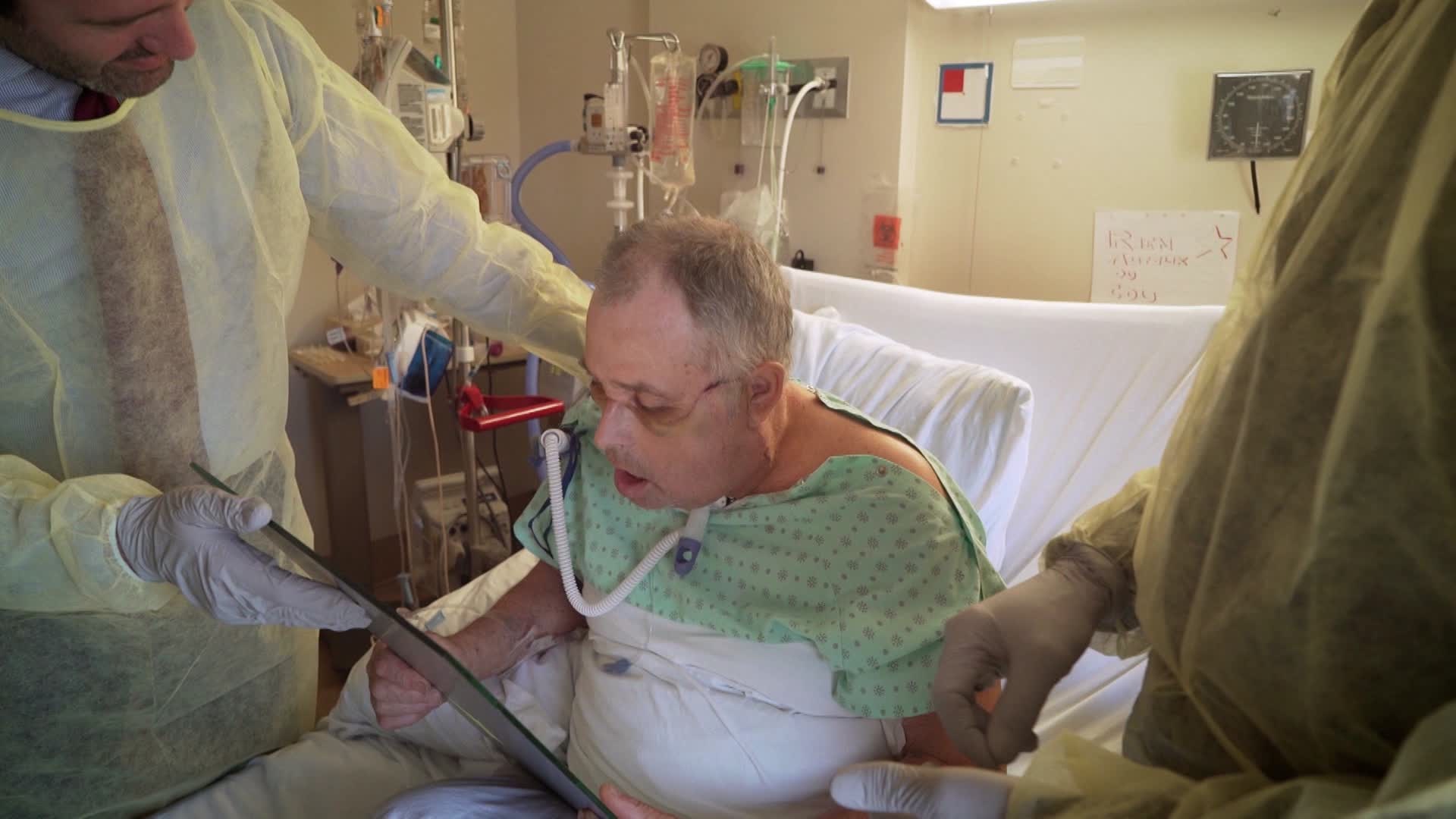
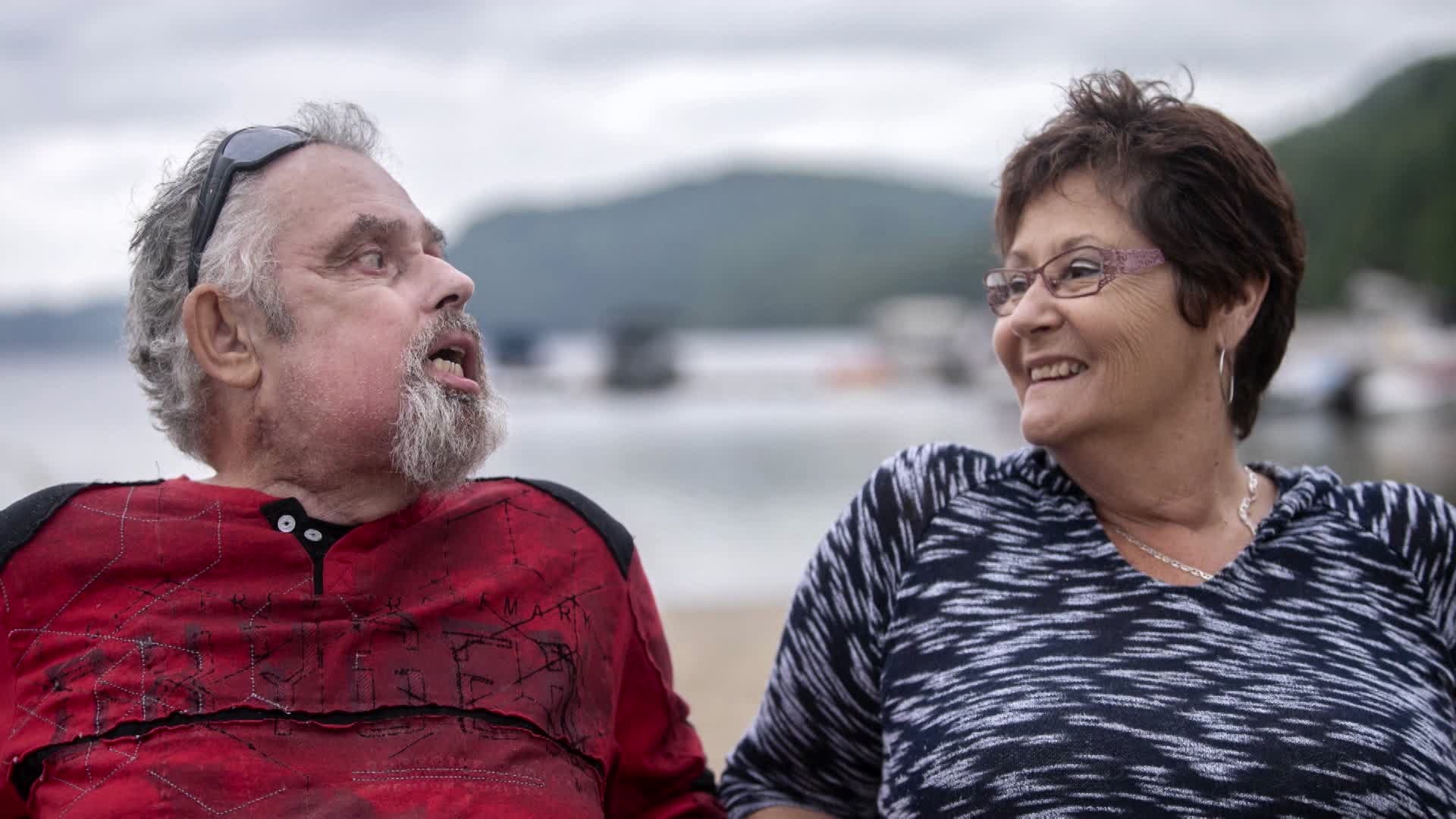
https://www.rthk.hk/tv/dtt31/programme/sciencewithyou/episode/689025
14/08/2020
本集記載了一個非比尋常的手術:加拿大首個全面移植手術,加拿大攝製團隊獲准拍攝這項大膽計劃的每一個階段,據專家估計,手術的成功只有百份之五十。
攝製隊於手術前十五個月,開始拍攝醫療團隊於移植前準備工作的點滴,以及病人為手術所作的漫長等待。萬中無一的捐贈者出現,攝製隊隨即進入手術室,拍攝歷時三十五小時的手術過程,故事以病人首次見到自己的新面孔為結。
這是一個充滿勇氣、希望及決心的非凡科學旅程。
電視版本:雙語廣播(粵語/法語)
This documentary chronicles an extraordinary surgical exploit: the first complete face transplant ever performed in Canada. The Canadian TV crew was granted full access to every stage of this daring project, which experts estimated had only a 50 percent chance of succeeding.
The crew’s privileged access begins 15 months prior to the operation. The production follows the medical team’s preparations for the transplant and the patient’s long wait for surgery. Once the donor is found, the crew moves into the operating room to document the procedure, which lasts 35 hours. The story concludes with the patient seeing his new face for the first time.
This one-of-a-kind document recounts every detail of a remarkable science odyssey fuelled by courage, hope and determination.
TV Version: Bilingual Broadcast (Cantonese/French)









https://www.rthk.hk/tv/dtt31/programme/sciencewithyou/episode/689025